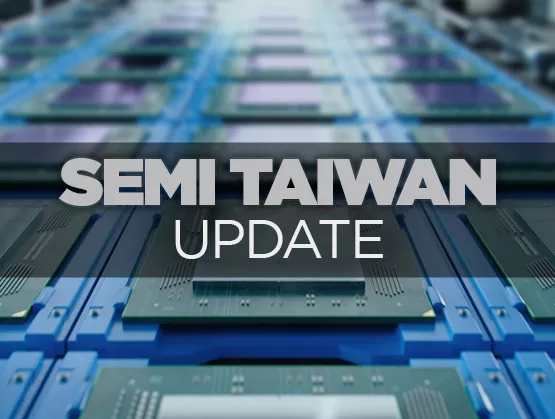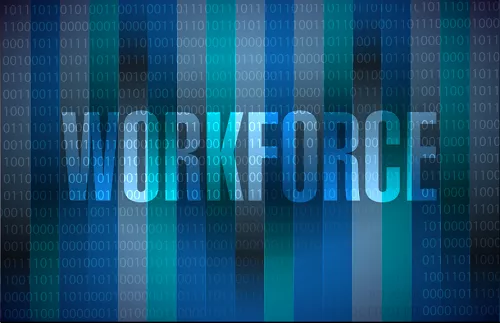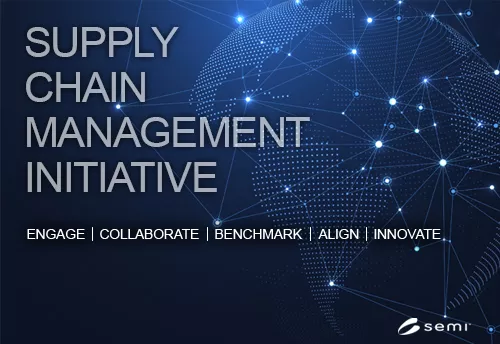
Taiwan, located at the junction of Northeast and Southeast Asia, is small, with a land area of 35,410 square kilometers and a population of about 23 million. But the island matters in a big way to global chip industry growth: Taiwan produces over 60% of the world's semiconductors and over 90% of the most advanced chips.
Taiwan’s advanced semiconductor technologies are vital to continuing innovation in 5G, IoT, AIoT, electric vehicles, the metaverse and other cutting-edge applications. According to statistics from the Taiwan Semiconductor Industry Association (TSIA), Taiwan accounted for US$162.3 billion, or nearly 30%, of the US$573.5 billion in global semiconductor sales (including IC design, manufacturing, packaging and testing) last year.
Despite a series of global black swan events in recent years including the COVID-19 pandemic, supply chain disruptions and rising inflation, Taiwan’s economy has remained secure in the arms of its robust semiconductor industry as it continues to grow, work closely with the global supply chain, and deepen collaborations with its partners.
Taiwan’s complete semiconductor industrial chain – from chip design and chip manufacturing to packaging and testing – has become the high-tech mountain range that helps safeguard its economy. Still, the region’s semiconductor industry faces significant challenges.
Four major challenges confronting Taiwan, the Silicon Island
1. Geopolitical tensions
The global chip shortage triggered by the pandemic and the U.S.-China dispute have heightened the urgency in many regions to improve supply chain resilience, and the Russia-Ukraine war and tensions across the Taiwan Strait that ensued have exacerbated the challenge. Taiwan has come to realize that geopolitics, as much as any other issue, will shape the future of its chip industry and others around the world.
 SEMI has long advocated for a Taiwan semiconductor industry advisory committee that develops evidence-based recommendations for the Taiwan government on matters involving science, technology, and innovation policy, and for a regional semiconductor strategy to maintain its leading position in the industry. SEMI applauds the Taiwan government’s invitation for select regional semiconductor companies to propose recommendations in late 2022.
SEMI has long advocated for a Taiwan semiconductor industry advisory committee that develops evidence-based recommendations for the Taiwan government on matters involving science, technology, and innovation policy, and for a regional semiconductor strategy to maintain its leading position in the industry. SEMI applauds the Taiwan government’s invitation for select regional semiconductor companies to propose recommendations in late 2022.
Today, a comprehensive high-level strategy is now under development through public-private partnerships. With geopolitical tensions a key challenge, Taiwan should leverage its technological advantages in a more sophisticated way to help the industry move from globalization to a new state of regionalization.
2. Supply chain uncertainty – the new normal
Growing geopolitical tensions have created a new normal for the semiconductor industry, requiring it to strengthen the resilience of its semiconductor supply chains in order to overcome challenges such as the reorganization and regionalization of production lines and the shortening of the chains. For its part, Taiwan needs to optimize its plans to deploy more semiconductor fabs globally to better meet the needs of its clients worldwide, while keeping key technologies intact so that it remains the front-runner in metaverse, artificial intelligence and other emerging tech fields.
3. Urgency to overcome talent shortage
Worldwide, SEMI estimates that more than 900,000 new semiconductor sector workers will be needed to support projected industry growth to US$1 trillion by 2030. In Taiwan, cultivating technology industry talent in the region has never been more challenging due in large part to its declining birth rate.
 Keeping the most advanced manufacturing technology in Taiwan will do little to boost the industry’s growth prospects worldwide if the talent shortage persists. To address this fundamental problem, enterprises should nurture new talent and find a way to attract and retain top talent from around the world.
Keeping the most advanced manufacturing technology in Taiwan will do little to boost the industry’s growth prospects worldwide if the talent shortage persists. To address this fundamental problem, enterprises should nurture new talent and find a way to attract and retain top talent from around the world.
4. Industrial chain sustainability
Growing awareness of the critical importance of net-zero carbon emissions worldwide has drawn more attention to the benefits of energy conservation and carbon reduction. Taiwan's semiconductor industry, a key supply chain partner behind global technology, needs to transform to sharpen its focus on sustainability in order to maintain its competitiveness.
New SEMI initiatives help global chip industry address key issues
SEMI continues to establish new programs to address these four critical industry issues in Taiwan and support worldwide semiconductor industry growth and innovation. The new SEMI Supply Chain Management Initiative provides solutions to help mitigate the impact of supply chain disruptions, while the Semiconductor Climate Consortium brings together chip ecosystem partners together to reduce the industry’s greenhouse gas emissions. At the same time, the new SEMI Taiwan Sustainable Manufacturing Committee is promoting sustainable manufacturing in Taiwan.
 To help overcome the workforce shortage, SEMI also recently launched the SEMI University online learning platform. In Taiwan, the SEMI Internship Matching Platform gives students majoring in technology and engineering at Taiwan universities access to internship opportunities at semiconductor companies. Students are mentored by industry professionals for an early taste of working in tech.
To help overcome the workforce shortage, SEMI also recently launched the SEMI University online learning platform. In Taiwan, the SEMI Internship Matching Platform gives students majoring in technology and engineering at Taiwan universities access to internship opportunities at semiconductor companies. Students are mentored by industry professionals for an early taste of working in tech.
New cybersecurity risks continuing to emerge, SEMI continues work to help secure data traversing the global supply chain. SEMI Taiwan last year launched the Semiconductor Cybersecurity Risk Rating Service, a third-party risk scoring and risk situation assessment service. Securing end-user electronics applications is also vital as automotive electronics and smart services bring advanced driver assistance systems, autonomous driving, connected vehicles and electric cars to the fore.
In response, SEMI Taiwan last year introduced the Auto IC Master, a comprehensive guide to automotive semiconductor and component providers in Taiwan. Designed to enable closer collaboration among carmakers, automobile Tier 1 suppliers and Taiwan’s semiconductor IDM and fabless companies, the guide promises to help automakers better adapt production capacity to semiconductor supply chain disruptions and drive innovation.
SEMI Taiwan welcomes new members
SEMI Taiwan continues to work to expand the breadth of its membership and enable the semiconductor industry to explore new possibilities and expand the entire ecosystem.
We are pleased to have welcomed many transnational, technology and venture capital companies as new members including EDF Renewables Taiwan, FORCERA, Iberdrola Renewables Taiwan, Nanya Technology, Plasticnet, Taiwania Capital Management and ZSC Holdings Taiwan Branch.
SEMICON Taiwan 2023 returns in September
![]() Core to our work to connect semiconductor industry players, SEMI Taiwan continues to work tirelessly to facilitate exchanges and dialogues in the semiconductor industry and help bridge the regional and overseas ecosystems. SEMICON Taiwan 2023 – September 6-8 at the Taipei Nangang Exhibition Center – is key to that effort. The exhibition and conferences will be held in both Halls 1 and 2 (TaiNEX 1 and 2) for the first time to accommodate a turnout expected to be the largest in a decade, with 780 exhibitors at 2,800 booths and more than 50,000 visitors. The exhibition and conferences will continue to facilitate technological innovation and discussions that will help shape the future of the global semiconductor industry.
Core to our work to connect semiconductor industry players, SEMI Taiwan continues to work tirelessly to facilitate exchanges and dialogues in the semiconductor industry and help bridge the regional and overseas ecosystems. SEMICON Taiwan 2023 – September 6-8 at the Taipei Nangang Exhibition Center – is key to that effort. The exhibition and conferences will be held in both Halls 1 and 2 (TaiNEX 1 and 2) for the first time to accommodate a turnout expected to be the largest in a decade, with 780 exhibitors at 2,800 booths and more than 50,000 visitors. The exhibition and conferences will continue to facilitate technological innovation and discussions that will help shape the future of the global semiconductor industry.
SEMICON Taiwan 2023 will focus on advanced manufacturing, compound semiconductors, heterogeneous integration, smart manufacturing, sustainable manufacturing, and semiconductor cybersecurity. Industry leaders and experts from Taiwan and around the world will share the latest semiconductor industry trends, technology developments and market insights.
Terry Tsao is President of SEMI Taiwan and Chief Marketing Officer at SEMI.